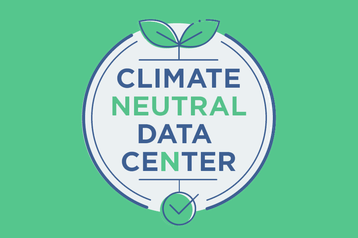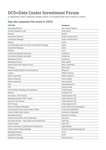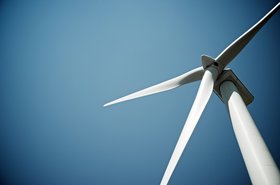Two years after its formation, Europe's Climate Neutral Data Centre Pact (CNDCP) has published its first list of certifications: more than 80 service providers who have promised to be climate neutral (by the Pact's definition) by 2030.
The CNDCP is a voluntary initiative for service providers and data center operators to commit to environmental goals. It was set up in 2021 by industry bodies CISPE and EUDCA, and has become a "self-regulatory initiative" (SRI) with its achievements recognized and reported to the European Union. The 80 signatories have committed to providing data that will prove they have adhered to the Pact's goals by 2030.
To be certified, operators must be able to provide data that shows they meet five targets:
- They must have a PUE (power usage effectiveness) of less than 1.3, or 1.4 for warm climates by 2030 - new data centers have to meet the target from 2025
- They must match 75 percent of their energy with clean energy by the end of 2025, and match it 100 percent by the end of 2030.
- In areas of high water stress, they must use a maximum of 0.4 liters per kWh by 2025
- They must "assess" 100 percent of their used servers for possible recycling, with an target for actual reuse to be set in 2025
- They must "explore" waste heat reuse.
The Pact says it has "more than 100" members, with 89 showing on the published list. Of these, 22 joined in 2022 and 2023, and have not yet been able to collect and submit enough data to be certified.
Of the 67 who joined in 2021, 11 have managed to submit data and be fully certified by third parties, while the vast majority (46) have gone through the certification process internally and "self-certified".
Those that are fully certified include Google. IBM, Intel, Iron Mountain, Leaseweb and NTT.
Three signatories have lapsed: the French giant Atos, Register, and Scaleway, an Iliad subsidiary that spun off as Opcore last month.
Seven certifications are pending, including three significant names - Microsoft, France's OVHcloud, and Germany's T-Systems.
The Pact explains the pending status is a temporary measure owing to the difficulty in getting the paperwork done: "Due to the complexity of reporting, plus adaption to new legislation and regulation including the EU Taxonomy and the Energy Efficiency Directive (EED), the certification process has taken longer than some anticipated," says the Pact's release. "As a result, a small number of signatories had not completed their audits by the deadline of 1st July. However, they are on track to do so in the coming weeks. In recognition of this, they have been allocated the temporary status of ‘Certification – Pending.’ They will achieve full certifications once audit results are reported to the Board."
When the Pact was launched, it was seen by some as a move to head off EU regulations on the industry, and perhaps get data centers exempted from regulations such as the Taxonomy and the EED, At the launch, EUDCA head Michael Winterson said it was more about saving the EU the trouble: "It’s not that we don’t want to be regulated," he told DCD in 2021: "It would be very expensive for the EU to set up a regulatory environment, and set up an agency to administer it. We have saved them from that huge financial burden."
In 2022, the Pact published its Audit Framework which checks progress against the EU Taxonomy.
Pact Board chairperson Matt Pullen said: “The extremely high proportion of signatories which have successfully certified their climate neutral processes is a clear indication that industry has embraced self-regulation as a vital step towards meeting stringent targets for climate neutrality by 2030. I’d like to take the opportunity to thank all our signatories for their hard work and commitment in achieving this significant milestone.”
The Pact reports that two operators have yet to inform the Board that they have commenced their certification process, while one SME has yet to confirm its self-certified status to its national trade association. Both have 60 days to provide an update to the Board.






